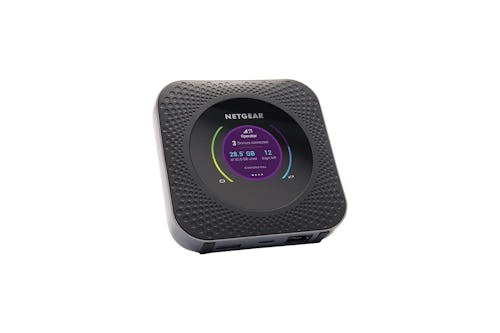
As a digital nomad you’re either strapping up your hiking boots to hit the local trails, or flying to Mexico for a week of margaritas and sunshine. And with remote work becoming more common, a life spent hopping between countries is finally within reach for many of us. But life on the road, or in the woods, lacks one necessary modern convenience: an internet connection.
Fortunately, portable Wi-Fi hotspots are the perfect solution for travelers and digital nomads to stay connected. These compact devices provide a high-speed connection wherever you go, so you can get your work done (and pay the bills) while exploring new locales or camping beneath towering evergreens.
How do mobile Wi-Fi hotspots work?
A portable Wi-Fi hotspot is a pocketable device that uses a cellular signal to create your own Wi-Fi network. These hotspots typically output both 2.4GHz and 5GHz Wi-Fi connections, and connect to the internet through mobile networks that transmit cellular data through radio waves, called frequencies. This means that you can connect your laptop, tablet, or smartphone to the internet even if there is no public Wi-Fi available. Portable Wi-Fi hotspots are sometimes also called "Mi-Fi" devices.
Features to look for in a Wi-Fi hotspot
Prepaid data packages vs. SIM card
To get your portable Wi-Fi device connected to the internet, you will need to purchase a prepaid data plan or local SIM card. If you plan to use your Wi-Fi hotspot for international travel, look for a device that has prepaid data plans available. Purchasing a prepaid plan prior to leaving on a trip means you can skip the hassle of locating a foreign service provider and picking up a SIM card.
If you're planning on using your hotspot primarily in the U.S. and North America, purchasing a SIM card from a major carrier like AT&T or T-Mobile will get you the best network coverage. I recommend this option for campers, hikers, or van-lifers that require an internet connection in remote locations.
Supported networks and frequencies
The frequencies used to transmit data vary depending on the region or country you're in and the carrier you're on. You need to keep an eye out for which frequencies your hotspot will support.
The most common networks and their frequencies include:
- 2G/3G: The second- and third-generation of wireless technology. These networks run on either GSM (Global System for Mobiles) or CDMA (Code Division Multiple Access) frequencies. GSM is more widely used and better for travelers.
- 4G or LTE: This network is currently the global standard and offers the fastest connection speeds. 4G transmits through LTE frequencies, and only uses GSM or CDMA as a fallback when there is no LTE connection available.
- 5G: The fifth-generation mobile network technology provides increased reliability, speed, and network capacity, but global coverage is currently only at 25 percent. Outside of major cities, 4G LTE and 3G networks are the most widely available.
your hotspot will only work in areas where there is cellular coverage
Luckily, device makers don’t want to build a different device for every frequency, so most Wi-Fi hotspots are compatible with 2G, 3G, and 4G LTE. Keep in mind that , no matter the frequency. Oftentimes, remote locations will not have a signal since there aren't any nearby cellular towers or the closest one can't reach it.
Input may receive a portion of sales if you purchase a product through a link in this article. We only include products that have been independently selected by Input's editorial team.
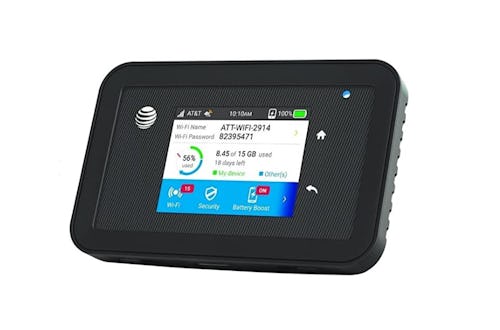
The NETGEAR Unite Explore AC815S is a fast and reliable hotspot with 18 hours of battery life. This device provides download speeds up to 450Mbps. The device is compatible with GSM SIM cards, so you can use it with your preferred service provider. Bonus points go to the Unite Explore for its durable design with rubber bumpers and splash resistance.
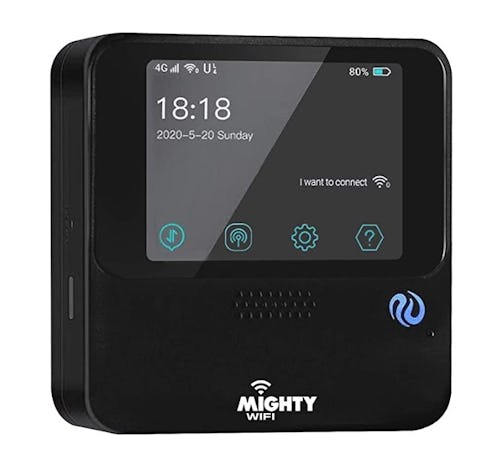
The MightyWiFi is a SIM-free hotspot that supports 29 frequencies on the 4G network which provides you with coverage in over 150 countries. This hotspot has flexible global data plans that are prepaid, ranging from 3GB to 30GB. The 5,000 mAh battery also doubles as a portable power bank with up to 12 hours of usage. The MightyWiFi supports up to five devices at once.
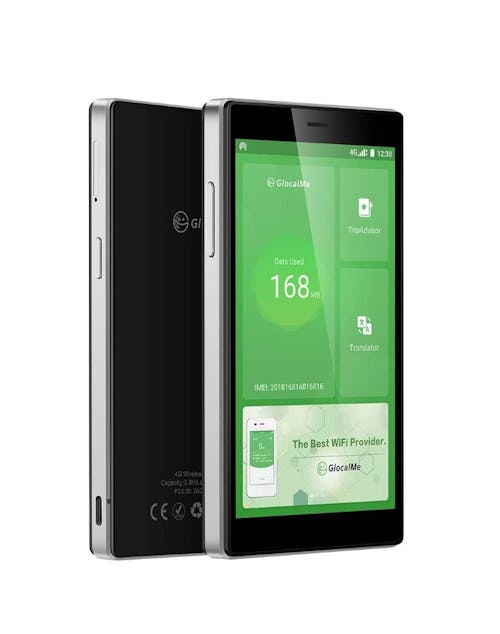
The GlocalMe G4 is a powerful pocket-sized hotspot with up to 12 hours of battery life, built-in data plans, and support for SIM cards from over 140 countries. With a 5-inch touchscreen display for easy setup and configuration, and built-in apps like Google Maps, this little device is a fuss-free companion.

The Huawei E5885 Wifi 2 has lightning fast 300Mbps download speeds and is compatible with 4G LTE bands in Europe, North America, and Asia. A built-in 6,400 mAh battery pack provides 25 hours of battery life and a 2-in-1 lanyard charging cable that can easily keep both the hotspot or your phone powered up. Setup is made simple thanks to single-tap NFC connectivity. Plus, it's dust and spill-resistant, so it’s a great fit for more rugged adventures.
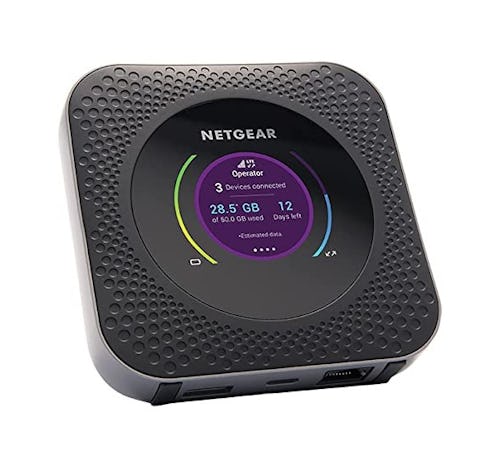
The Netgear Nighthawk M1 is an unlocked 4G mobile hotspot that's fast and reliable. It comes with a built-in 5,000 mAh battery capable of providing 11 hours worth of power while you're out hiking or traveling. This compact device has a USB port for media streaming from an external drive or for charging your phone in a pinch. Compatible with SIM cards from most major service providers, but also supports prepaid data plans from AT&T and T-Mobile.
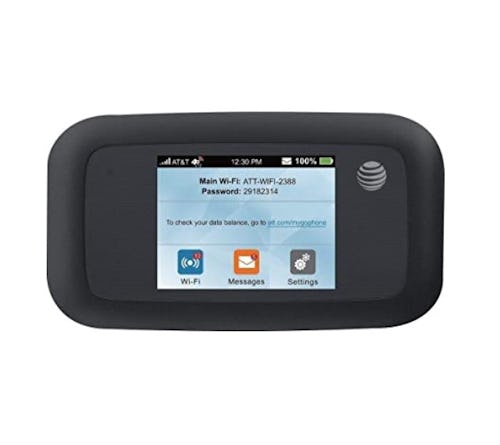
The ZTE Velocity MF923 is a GSM unlocked hotspot that supports up to 10 devices at once. It comes with a 2,800 mAh battery that provides 10 hours of battery life, and you can insert a microSD to use as a shared network drive. The Velocity also has a bright and responsive 2.4-inch touchscreen display, which makes it easy to set up your device within minutes. This device connects to both 4G and 5G networks in 200 countries.

Alcatel’s LINKZONE is a simple budget hotspot capable of providing 4G LTE speeds up to 150Mbps. The LINKZONE works with a SIM card from any GSM carrier and supports up to 15 devices at once. You’ll get six hours of juice out of the 1,800 mAh battery, and setup is a breeze thanks to the user-friendly interface. This hotspot is ideal for travelers heading to Central or South America since it is compatible with 4G networks that transmit through 1,700-2,100 Mhz frequencies.
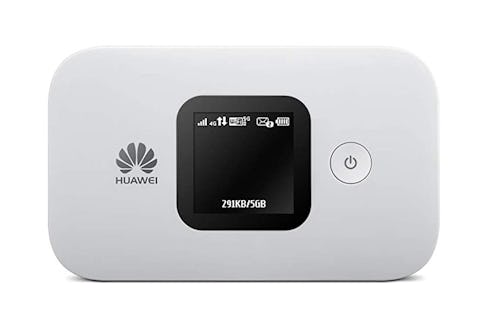
The Huawei E5577Cs hotspot costs less than $100. It has a 1,500 mAh battery that lasts for six hours on average and supports all GSM networks. Download speeds reach up to 150Mbps. This hotspot can also be used as a Wi-Fi extender at home, making it useful even when you’re not traveling. On top of that, with the LCD touchscreen, you can view available networks, battery life, and easily tinker with other settings.







